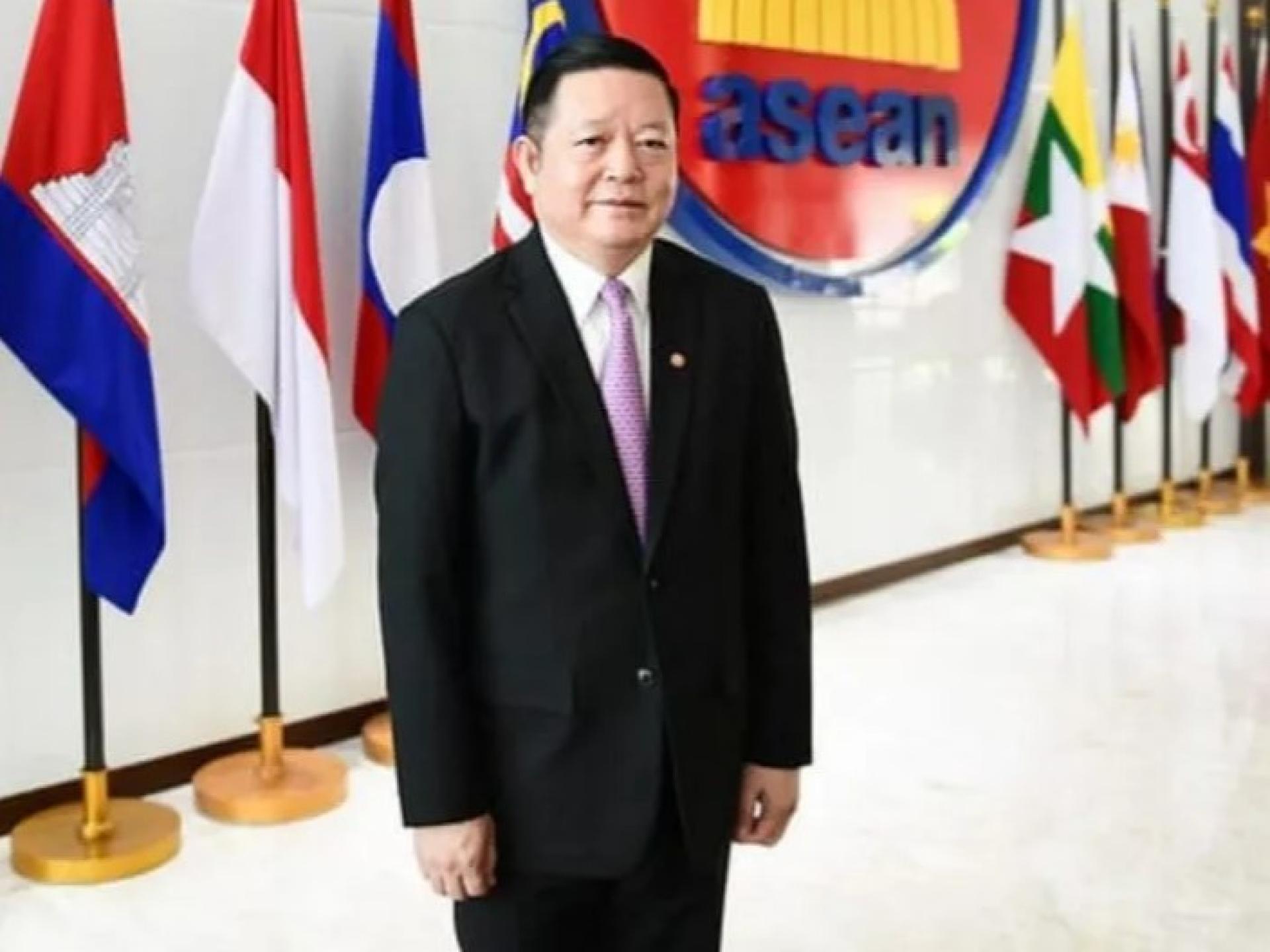(Jakarta, 18th Comprehensive Report) Since ASEAN adopted the document "ASEAN 2045: Our Common Future" in May 2025, a grand blueprint for regional peace, prosperity, and cooperation has been mapped out, with artificial intelligence (AI) seen as the key driving force behind this vision.
ASEAN Secretary-General Dr. Kao Kim Hourn pointed out that AI is no longer a distant technology, as many Southeast Asian countries have already applied it in agriculture, healthcare, disaster prevention, education, and other sectors, bringing profound changes to regional development. For example, Cambodia leverages AI to assist with agricultural decision-making, Indonesian small farmers use AI chat systems to increase yields, Thai doctors use AI for diabetic retinopathy diagnosis, and Vietnam employs AI for flood prediction, enabling communities to prepare a week in advance.
At the same time, the United States, China, and the European Union are ramping up AI investment and establishing global rules. ASEAN, too, must embrace competition through inclusive, collaborative, and people-centric approaches.
Research shows that AI is expected to add $270 billion in value to the Southeast Asian economy, enabling the region to move up the global value chain. However, this gain will not happen automatically—the key lies in ensuring technology becomes a force for bridging gaps rather than widening inequalities.
Dr. Kao Kim Hourn noted that ASEAN's digital transformation focuses on three core priorities: building infrastructure, cultivating AI talent, and strengthening AI governance.
First, countries in the region have made progress in enhancing cloud and data infrastructure, including Google's $1 billion investment in Thailand and $2 billion in Malaysia, as well as its expanded cloud region services in Indonesia. These investments are expected to contribute significantly to local GDP and increase employment. Meanwhile, the region promotes shared computing resources and the creation of local language datasets, such as the "Southeast Asian Language Data (SEALD) Network Initiative," making AI development more culturally and linguistically inclusive.
Second, ASEAN is committed to narrowing gender and digital skills gaps. Through the ASEAN Foundation’s partnership with Google.org on the "AI Ready ASEAN" initiative, it plans to train 5.5 million people, with a focus on enhancing the skills of women and youth to help regional MSMEs cope with technological transformation.
Third, ASEAN is at the forefront of AI governance, having launched the "ASEAN Guide on AI Governance and Ethics" and the "Guidelines for Generative AI Scaling," and formulated the "ASEAN Roadmap for Responsible AI." At the 47th Summit in 2025, ASEAN leaders will also establish the world’s first regional AI safety network (AI SAFE) to promote the practical implementation of AI safety and ethics.
In addition, the anticipated "ASEAN Digital Economy Framework Agreement" (DEFA) is set to become the world’s first regional digital economy agreement, expected to generate up to $2 trillion in economic value by 2030, promote cross-border data flows, digital trade, and responsible technological development.
Dr. Kao Kim Hourn emphasized that technology will not determine ASEAN's future—people are the key. ASEAN’s mission is to ensure that AI becomes a driving force for shared prosperity, rather than a tool for the benefit of a few. He believes that if ASEAN can ensure AI reflects the region’s values of inclusiveness and cooperation, the future of technology and humanity can move forward together.
At the same time, the United States, China, and the European Union are ramping up AI investment and establishing global rules. ASEAN, too, must embrace competition through inclusive, collaborative, and people-centric approaches.
Research shows that AI is expected to add $270 billion in value to the Southeast Asian economy, enabling the region to move up the global value chain. However, this gain will not happen automatically—the key lies in ensuring technology becomes a force for bridging gaps rather than widening inequalities.
Dr. Kao Kim Hourn noted that ASEAN's digital transformation focuses on three core priorities: building infrastructure, cultivating AI talent, and strengthening AI governance.
First, countries in the region have made progress in enhancing cloud and data infrastructure, including Google's $1 billion investment in Thailand and $2 billion in Malaysia, as well as its expanded cloud region services in Indonesia. These investments are expected to contribute significantly to local GDP and increase employment. Meanwhile, the region promotes shared computing resources and the creation of local language datasets, such as the "Southeast Asian Language Data (SEALD) Network Initiative," making AI development more culturally and linguistically inclusive.
Second, ASEAN is committed to narrowing gender and digital skills gaps. Through the ASEAN Foundation’s partnership with Google.org on the "AI Ready ASEAN" initiative, it plans to train 5.5 million people, with a focus on enhancing the skills of women and youth to help regional MSMEs cope with technological transformation.
Third, ASEAN is at the forefront of AI governance, having launched the "ASEAN Guide on AI Governance and Ethics" and the "Guidelines for Generative AI Scaling," and formulated the "ASEAN Roadmap for Responsible AI." At the 47th Summit in 2025, ASEAN leaders will also establish the world’s first regional AI safety network (AI SAFE) to promote the practical implementation of AI safety and ethics.
In addition, the anticipated "ASEAN Digital Economy Framework Agreement" (DEFA) is set to become the world’s first regional digital economy agreement, expected to generate up to $2 trillion in economic value by 2030, promote cross-border data flows, digital trade, and responsible technological development.
Dr. Kao Kim Hourn emphasized that technology will not determine ASEAN's future—people are the key. ASEAN’s mission is to ensure that AI becomes a driving force for shared prosperity, rather than a tool for the benefit of a few. He believes that if ASEAN can ensure AI reflects the region’s values of inclusiveness and cooperation, the future of technology and humanity can move forward together.
